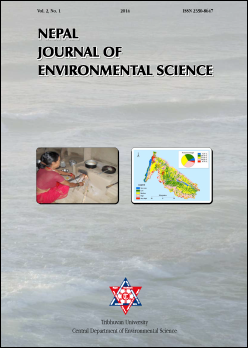Design optimization of improved cooking stove
DOI:
https://doi.org/10.3126/njes.v2i0.22744Keywords:
Efficiency, fuels, improved cooking stoves, optimizationAbstract
Improved cooking stove (ICS) has provided the emerging opportunities, especially in the developing nations, considering the fact that it is more efficient and environment friendly than conventional cooking stoves. The paper briefly discusses about the design optimization of ICS. Current models are designed predominantly based on maximum energy conversion rather than coupling it with the original habits of users. There are various factors to be considered during the design of the cooking stove. The optimum design has the maximum efficiency resulting in low carbon emission, low kitchen indoor pollution, low fuel wood consumption and finally conserves the environment.
Downloads
Downloads
Published
How to Cite
Issue
Section
License
This license enables reusers to distribute, remix, adapt, and build upon the material in any medium or format for noncommercial purposes only, and only so long as attribution is given to the creator.

